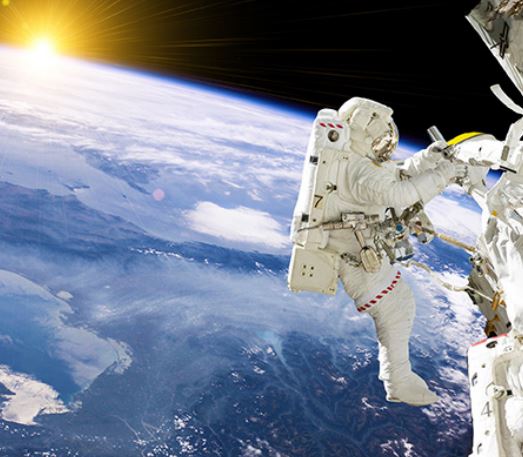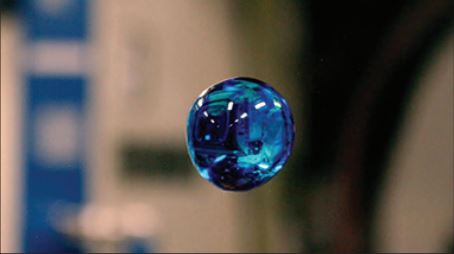ATP-metry: a technology in orbit
Three liters of water per person per day. Only three liters to wash yourself, your hair, your teeth, to drink and cook… This is the daily constraint of the astronauts in the International Space Station (ISS).
There, the water, constantly recycled, must be closely monitored and carefully decontaminated. A problem that GL BIOCONTROL is currently tackling. In the Biowyse consortium, the company has 3 years to develop an “on-line” and space compatible instrument that autonomously monitor bacteria in water.

Gravity, confined space, limited weight… due to very specific constraints and risks of contamination, water is very limited in the ISS. The company GL Biocontrol, located in Montpellier (France) and specialized in environmental risk management, has been working on this specific issue for several months. “We have been contacted late 2014 by a subsidiary company of Thales, Thales Alenia Space Italy, Nicolas Fabre, technical manager of GL Biocontrol, recalls. They were interested in our manual technology: quantitative ATPmetry to monitor microbial water quality. But we did not know why.”

«Automation of our ATP system adapted to the spatial habitat»
Focus on quantitative ATP-metry
This technique, developed by the company in 2009, aims to quantify the number of bacteria in water. It is the most simple and rapid analysis method on the market. “At first, quantitative ATP-metry was only a laboratory technique. We simplified the protocol and adapted it to use on the field, Clément Faye, research engineer, explains. Our kit has several advantages: easiness-to-use, ultra-fast – result obtained in 2 minutes -, and very low limit of detection. It is probably the product the most sensitive on the market.”
Set out to conquer space
Arguments that convinced Thales. In their search for industrial partners for a Horizon H2020 project, Thales Alenia Space offered GL Biocontrol to be part of the BIOWYSE team. “The scope of the call for proposal was “How to manage contamination level of air, water and surfaces in the International Space Station?”. They expected us to automate our ATP system in order to make it suitable for space habitat.”

More virulent bacteria
“We learnt in September 2015 that the Biowyse project was selected by the European Commission, Nicolas Fabre explains. Since then, we are working on solutions to the specific problems of the ISS.” The astronauts are indeed limited to 3 liters of water per day per person. This is the daily constraint of the astronauts and thus of GL Biocontrol’s project. « You can only imagine doing everything with only 3 liters of water: wash, drink… or simply keep a good level of hygiene.” The stakes for the company are big. “All the water and fluids inboard the station, including sweat, condensation and liquid waste, must be recycled. They are treated and then reused. Furthermore, bacteria are more aggressive in the ISS because they do not have to “fight” against gravity. No risks can be taken when the astronauts’ health is at stake.”
Three years, two modules
GL Biocontrol has 3 years to develop an instrument that prevents this type of issues. “The astronaut must be able to decide when starting a disinfection and this much earlier than today.” Clément Faye remarks. “Our job is to design and built to modules based on the ATP test: one module to monitor water quality, and one module for surfaces control. In addition, these modules will trigger water and surface disinfection processes.”
A real challenge! Requirements concerning mass, size, power… also constraint the project. “But it is an exciting challenge! And the instrument might be used for other spatial project for the Moon or Mars.” An important form of recognition of the company: “Our technology is of interest to the major players in the sector of water.” The company hired two engineers to work specifically on the Biowse project. Regarding the future water monitoring instrument, the terrestrial version should be ready in the month ahead.
P.Da Silva
Lignes Editoriales – www.ligneseditoriales.com
This project was supported by the project BIOWYSE (H2020-COMPET-2015-687447).
Biowyse,
a European consortium
Biowyse is at once the name of the project and of the consortium which includes a balanced mixture of industry, academia and research organisations:
► Thales Alenia Space (Italy),
► European Science Fondation (France),
► GL Biocontrol (France),
► Aquisense Technologies (England),
► Liewenthal Electronics (Estonia)…

